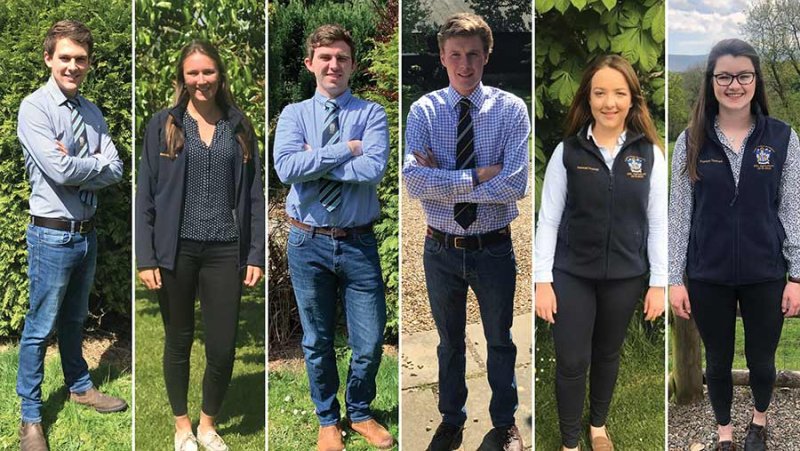
Agricultural students at Harper Adams have won this year's Farmplanner competition with their plan to tackle issues faced by a Rutland farming business.
The competition, now in its 27th year, is open to all UK agricultural colleges and challenges students to tackle real life problems facing a significant farming business.
The teams this year came from Bishops Burton, Hadlow, Hartpury, Harper Adams, Newcastle, Nottingham and Riseholme.
This year's host business was the Exton Park, a 1,286-hectare estate which has a suckler herd, 900 hectares of arable enterprises and ancient woodland.
Students were required to advise the estate management team on a range of questions including future staffing arrangements and how to develop redundant buildings.
They also looked at opportunities for diversification in woodland as well as the future cropping and livestock systems.
The winners were BSc (Hons) Agriculture students Alex Williams, Nicholas Hill, Annie Metcalfe, Frances Thomas and Hugo Dwerryhouse and BSc (Hons) Agriculture with Farm Business Management student Hannah Proctor.
Nicholas, 22, from Tavistock, Devon, said the team started by undertaking a full business appraisal and then identifying areas that could be improved.
“From here a lot of research and number crunching was carried out to find enterprises which would fit into the estate and meet the criteria set out by the estate owner.
"Fortunately for us the case studies, facilities and location allowed us to explore a number of options," he said.
Some of the key recommendations put forward were: planting miscanthus as a means to reduce labour requirement and concentrate on improving combinable crops; trial soya as a break crop to replace OSR; and replace the low input suckler heard with a heard of red deer.
“We also saw opportunities for diversification; a funeral barrow was identified as an option which fits into the traditional ethos of the estate,” Hannah, 22, from Hexham Northumberland said.
"Due to the popularity of the area and the number of walkers a café and woodland adventure park were also proposed."
Hugo, 22, from Tadley, Hampshire, explained how the team tackled the challenges presented by social distancing and lockdown: “It was a challenge to adapt to the new circumstances.
"We were fortunate to get most of the report done before we had to social distance. However, we still had to do a final draft and produce a presentation."
He added: "Initially not being able to meet with the team and the uncertainties surrounding our studies knocked motivation and the report got set aside for a couple of weeks.
"When we had started to settle down in isolation and got on top of workload, we soon moved our focus back to preparing for the competition."
Through the use of Zoom and Microsoft Teams, the students were able to plan, prepare and practise the presentation.
Due to the virus, the competition had to be moved online and the students did their final presentation over Zoom.
